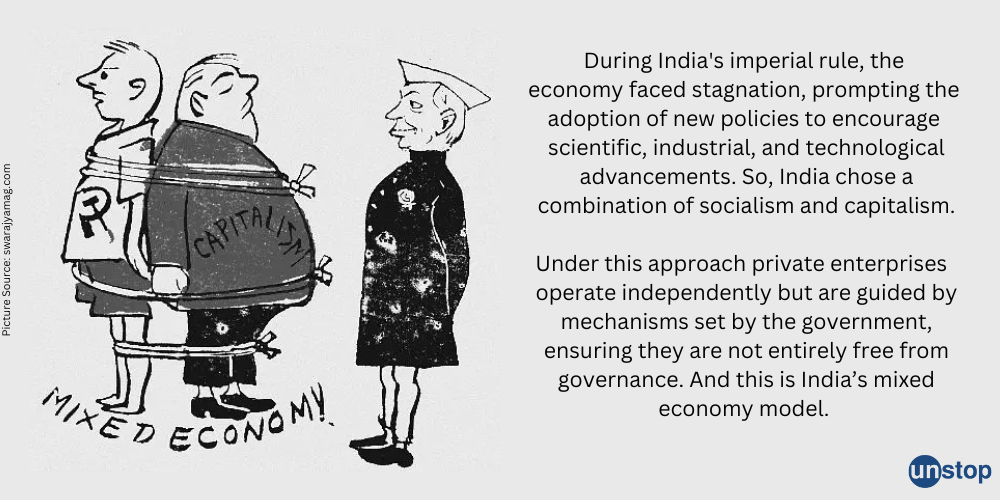- Free Market Meaning and Its Economic Impact
- Characteristics of a Free Market Economy
- Connection between the Free Market, Capitalism, and Individual Liberty
- Benefits of a Free Market: Growth, Innovation, and Efficiency
- Examples of Successful Free Markets: United States and Hong Kong
- Disadvantages of Free Market Economy
- Conclusion
- FAQs
- Further Reading: Economic Equilibrium and Low Barriers to Entry
What is A Free Market: Meaning, Benefits And Disadvantages

The concept of a free market has sparked lively debates in the field of economics for centuries. Free markets are a fundamental aspect of economic theory and play a crucial role in financial markets. In a free market, goods and services are exchanged without government intervention, allowing for competition, efficiency, and individual choice.
Also known as Lasissez Faire Capitalism, this system of market capitalism empowers consumers in market economies to make decisions based on price and product quality, while enabling sellers to operate within the scope of their own terms. It promotes free competition and is guided by the supply curve. In this article, we will understand what is a free market and explore its economic impact.
Free Market Meaning and Its Economic Impact
A free market economy refers to an economic system where buyers and sellers interact freely, determining prices based on the principles of supply and demand. This means that market forces, rather than government intervention, play a significant role in shaping the economy.
A real-life example of a free economy is the United States. With minimal government intervention, buyers and sellers freely interact in various industries, determining prices based on supply and demand. This allows for competition, innovation, and entrepreneurship to thrive, shaping the country's economic landscape.
Benefits of free market economies over centrally planned economies
In free market economies, resources are allocated efficiently through voluntary transactions between buyers and sellers. This means that goods and services flow to those who value them the most, resulting in an optimal use of resources. Unlike in centrally planned economies, where decisions are made by a few individuals or a governing body, a free market allows for decentralized decision-making by millions of participants.
The absence of government interference also promotes individual freedom and choice within the marketplace. Consumers have the power to choose from a wide range of products at varying prices, while producers have the liberty to set their own prices based on market conditions. However, in centrally planned economies, government regulations set prices of commodities, which may not always be beneficial for both parties.
What kind of economy is India? India has a mixed economy that combines elements of both socialism and capitalism. While the government plays a significant role in key sectors such as healthcare and education, there is also a thriving private sector. This mixed approach aims to balance social welfare with economic growth and has led to India's emergence as a major global economy.
Characteristics of a Free Market Economy
In a free market economy, private property rights are of utmost importance. Individuals and businesses have the right to own, use, and dispose of property as they see fit. This means that individuals can own land, buildings, and other assets without interference from the government.
Prices in a free market economy are determined by the forces of supply and demand. Unlike in regulated economies where the government sets prices, in a free market system, prices are determined through voluntary transactions between buyers and sellers. This allows for competition to drive prices down or push them up based on consumer demand.
Competition is another essential part of a free market system. It encourages innovation, efficiency, and lower prices. In a competitive market, businesses strive to offer better products or services at lower prices than their competitors to attract customers. This leads to improved quality and variety of goods available to consumers.
A free market economy operates based on the concept of spontaneous order. Rather than being centrally planned by the government, economic decisions are made by individuals acting in their self-interest. Through countless interactions between buyers and sellers, an efficient allocation of resources emerges without any central authority directing it.
Wages in a free market economy are also determined through negotiation between employers and employees rather than being set by the government. The supply and demand for labor influence wages as employers compete for skilled workers.
Connection between the Free Market, Capitalism, and Individual Liberty
In understanding what a free market is, it's essential to recognize its close association with capitalism and individual liberty. Capitalism, characterized by private ownership and profit motive, relies on the principles of the free market for its success. This connection highlights the significance of economic freedom and individual rights in a free market system.
In a free market, individuals have the liberty to make economic choices without undue interference from external forces. This means they can decide how to allocate their resources, what goods or services to produce or consume, and who to engage in trade with. Such economic freedom empowers individuals to pursue their own interests and goals.
One crucial aspect of a free market is the protection of property rights. Private property ownership forms the foundation of capitalism and allows individuals to exercise control over their assets. It ensures that people can enjoy the fruits of their labor and make decisions about how to use their property.
But is there any importance of the rule of law in a free economy? The rule of law plays an integral role in safeguarding individual liberty within a free market system. It establishes a framework that protects contracts, enforces property rights, and resolves disputes impartially. By upholding these principles, the legal system provides individuals with confidence in engaging in economic activities.
Contrasting socialism, which advocates for collective ownership and centralized control over resources, capitalism promotes individual initiative and self-reliance. In a free market economy driven by capitalist ideals, people have the opportunity to innovate, take risks, and reap rewards based on their efforts.
Benefits of a Free Market: Growth, Innovation, and Efficiency
A free market is an economic system that promotes growth, innovation, and efficiency. It encourages investment and entrepreneurship, leading to economic expansion. In a free market, businesses have the freedom to compete and pursue profit.
Economic Growth
One of the key benefits of a free market is its ability to foster economic growth. When entrepreneurs are allowed to invest their capital in various ventures, it stimulates economic activity. This investment leads to the creation of new businesses and job opportunities for individuals. As these businesses grow and expand, they contribute to overall economic development.
Innovation
The free market also promotes innovation as businesses strive to meet consumer demands effectively. In a competitive environment, companies are incentivized to develop new products or services that cater to the needs of consumers. This drive for innovation not only benefits consumers by providing them with better options but also fuels technological advancements and societal progress.
Efficiency
Efficiency is another advantage offered by a free market economy. Competition among businesses drives down costs as they strive to attract customers by offering better prices or higher quality products. This competition forces companies to streamline their operations and find ways to produce goods or services more efficiently.
A free market enables individuals to make choices based on their own preferences rather than being dictated by central planning authorities. This freedom empowers consumers with the ability to make informed decisions about how they spend their money.
Examples of Successful Free Markets: United States and Hong Kong
The United States and Hong Kong serve as prime examples of successful free markets, each embracing unique approaches to economic freedom. In the United States, a historical commitment to limited government intervention has paved the way for a thriving economy. With its emphasis on individual liberties and entrepreneurship, the country has fostered an environment conducive to growth and innovation.
Hong Kong, on the other hand, has achieved remarkable economic success through its dedication to low taxes, minimal regulations, and open markets. Often hailed as one of the freest economies in the world, Hong Kong's laissez-faire approach has attracted businesses from around the globe. This bustling city-state serves as a testament to how embracing free market principles can lead to prosperity.
Both nations have experienced significant economic growth attributed to their embrace of the free market system. The United States' entrepreneurial spirit, coupled with limited government interference, has allowed for dynamic industries and technological advancements. Similarly, Hong Kong's commitment to economic freedom has resulted in a vibrant business landscape that attracts investors and fosters competition.
These successful examples highlight how free markets can unleash human potential by providing opportunities for individuals and businesses alike. By allowing market forces rather than government intervention to dictate prices, wages, and resource allocation, these countries have created environments where innovation thrives.
Disadvantages of Free Market Economy
Lack of Public Goods
While free markets excel at allocating resources efficiently, they may fail to provide certain public goods. Public goods are non-excludable and non-rivalrous, meaning that once provided, everyone can benefit from them without diminishing their availability for others. Examples include healthcare and education. In a purely free market system, these essential services may not be adequately provided to all members of society.

Income Inequality
In a free-market economy, the absence of government regulation can result in income inequality. Without intervention, wealth can become concentrated in the hands of a few individuals or corporations while others struggle to make ends meet. This uneven distribution of wealth can lead to social unrest and economic instability.
Emergence of Monopolies
Another negative effect of a free market is the potential emergence of monopolies. Without government intervention, some companies may gain excessive market power and limit competition. This lack of competition reduces consumer choice and can result in higher prices and lower-quality products or services.

A popular example of a monopoly is Microsoft, which dominated the personal computer operating system market for many years and limited competition. This allowed them to control prices and dictate industry standards.
Market Failure
Free markets are not immune to failure. Market failures occur when the allocation of resources by the market leads to inefficient outcomes. Externalities, such as pollution or negative impacts on third parties, are often not accounted for in a free-market system. Certain industries may require heavy regulation due to their inherent risks or complexities. For example, the telecommunications industry in some countries has experienced market failure, with a single dominant provider controlling prices and limiting competition.
Costs and Restrictions
It's important to note that transitioning from a socialist economy to a free-market system, known as market socialism, also comes with its own challenges and costs. Implementing regulations and enforcing property rights can be costly for governments transitioning from more centralized systems.
Conclusion
So, now you have a solid understanding of what a free market is and its economic impact. We explored the characteristics of a free market economy, the connection between the free market, capitalism, and individual liberty, as well as the benefits and disadvantages of this system.
Understanding how a free market operates is crucial because it affects various aspects of our lives. It influences not only our economy but also our opportunities for growth, innovation, and efficiency. By embracing the principles of a free market, we can foster an environment that encourages competition and rewards individual initiative.
FAQs
What role does government regulation play in a free market?
Government regulation in a free market serves to maintain competition while protecting consumers from harmful practices. It ensures fair play by preventing monopolies or anti-competitive behavior that could stifle innovation or harm consumers' interests.
Can there be too much freedom in a free market?
While freedom is essential for a thriving economy, an excessive lack of regulation can result in negative consequences such as income inequality or environmental degradation. Striking the right balance between freedom and necessary regulations is crucial for sustainable growth.
Are all industries suitable for a completely free market?
While many industries thrive under free-market conditions, certain sectors may require some level of government intervention due to their unique characteristics or potential negative externalities. For example, industries like healthcare or utilities often benefit from some form of regulation to ensure accessibility and affordability for all.
Does a free market guarantee equal opportunities for everyone?
A free market doesn't guarantee equal opportunities for everyone. Factors such as socioeconomic background, education, and access to resources can create disparities. However, a well-regulated free market can provide more opportunities compared to heavily controlled economies.
How does a free market promote innovation?
In a free market, competition incentivizes businesses to innovate in order to gain an edge over their rivals. The absence of excessive regulations allows entrepreneurs and inventors the freedom to experiment, leading to technological advancements and new products or services that benefit society as a whole.
Further Reading: Economic Equilibrium and Low Barriers to Entry
Now that you grasp the basics of a free market economy, why not explore further? Dive deeper into topics like economic equilibrium or discover how low barriers to entry can promote entrepreneurship.
Economic Equilibrium
Achieving economic equilibrium is the goal of any market. It occurs when the supply of goods or services matches the demand at an optimal price point. In simple terms, it's like finding a sweet spot where both buyers and sellers are satisfied. Economists study supply and demand curves to determine this equilibrium price.
In a free market, prices are determined by these forces rather than by regulations or interventions. When demand exceeds supply, prices increase, signaling producers to increase production. Conversely, if supply surpasses demand, prices decrease, prompting producers to reduce output. This constant adjustment helps maintain stability in markets.
Low Barriers to Entry
Low barriers to entry refer to the ease with which new businesses can enter a market and compete with existing enterprises. In a free market system that encourages competition, low barriers allow for innovation and entrepreneurial activity.
When there are minimal constraints on entering a particular industry or sector, new businesses can bring fresh ideas, products, and services into the market. This increased competition fosters efficiency improvements while providing consumers with more choices at competitive prices.
Low barriers also prevent monopolies or cartels from dominating industries since potential competitors have equal opportunities to enter the market and challenge established players.
We hope this article was helpful to you. The more you learn about these concepts, the better equipped you'll be to navigate today's complex economic landscape. So keep exploring, keep questioning, and keep expanding your knowledge—you never know where it might lead you!
Suggested Reads:
As a biotechnologist-turned-writer, I love turning complex ideas into meaningful stories that inform and inspire. Outside of writing, I enjoy cooking, reading, and travelling, each giving me fresh perspectives and inspiration for my work.
Login to continue reading
And access exclusive content, personalized recommendations, and career-boosting opportunities.
Subscribe
to our newsletter














Comments
Add comment